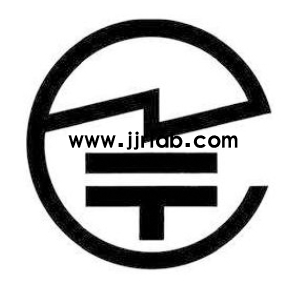
Japan Wireless Product Certification Requirements
The TELEC/MIC certification in Japan is a mandatory certification for products with wireless transmission functions, aiming to ensure that these devices comply with Japan's radio regULations for proper operation within the Japanese wireless communication network. Below is a detailed overview of TELEC/Mic certification:

1. Definition and Background
telec certification, also known as mic certification (MIC stands for the Ministry of Internal Affairs and Communications), is the main registration certification body for radio equipment conformity in Japan. TELEC/MIC certification is mandatory for all products with wireless transmission capabilities, such as devices with Bluetooth, Wi-Fi, and 2G/3G/4G functionalities.
2. Main Content and Purpose
The TELEC/MIC certification covers two main aspects:
- Testing Certification: It includes electromagnetic compatibility testing to ensure the device does not interfere with other equipment. Additionally, the device's radio frequencies are tested to confirm they fall within the ranges set by the Japanese government.
- Conformity Certification: This involves testing and assessing various performance and functional aspects of the radio equipment, including transmission power, frequency stability, and signal interference, to ensure compliance with Japanese radio regulations.
3. Product Scope
TELEC/MIC certification covers a wide range of radio products, including but not limited to:
- Radio products and telecommunications terminal equipment (such as laptops, projectors, etc.).
- Various Bluetooth products (such as Bluetooth headsets and speakers).
- UWB (Ultra-Wideband) products.
- Wireless modules (such as Wi-Fi modules, NFC modules).
- Mobile phones and tablets.
- In-vehicle devices, etc.
4. Application Process
The application process for TELEC/MIC certification primarily involves the following steps:
1. Document Preparation: Gather and prepare the requiRED documents, including product specifications, technical files, and relevant certificates.
2. Laboratory Testing: Submit the product to a laboratory qualified for TELEC/MIC certification testing to assess its electromagnetic compatibility and radio frequencies.
3. Application and Review: Complete and submit the TELEC/MIC certification application form along with the necessary documents and test reports. Upon successful final review, the TELEC/MIC certification body will issue a TELEC/Mic certificate, permitting the product to be sold in the Japanese market.
5. Labeling Information and Reference Standards
TELEC/MIC certification requires clear labeling information on the product, including test results, setup photos, and inspection details to ensure consumers are informed of the product’s compliance. The reference standards for TELEC/MIC certification cover multiple aspects, including electromagnetic compatibility (EMC) standards, radio communication standards, and safety standards, ensuring the compliance and performance of radio devices.
In summary, TELEC/MIC certification is one of the essential certifications for selling radio devices in the Japanese market. It involves testing certification and conformity certification, both aiming to ensure that radio devices comply with Japanese radio regulations, thereby enabling their proper operation within Japan's wireless communication network.
Email:hello@jjrlab.com
Write your message here and send it to us
 Canada Wireless Device IC Certification RSS-210 Te
Canada Wireless Device IC Certification RSS-210 Te
 FCC Part 15.231 for Wireless Remote Controls and S
FCC Part 15.231 for Wireless Remote Controls and S
 Is SAA Certification Required for Lamps Sold to Au
Is SAA Certification Required for Lamps Sold to Au
 Tablet PC RSS-247 Test Report
Tablet PC RSS-247 Test Report
 Canada ISED Certification RSS-247 Standard Testing
Canada ISED Certification RSS-247 Standard Testing
 What Are the Product Compliance for Amazon Austral
What Are the Product Compliance for Amazon Austral
 Australia IoT Security Compliance
Australia IoT Security Compliance
 V16 Warning Light EU EN 18031 Cybersecurity Certif
V16 Warning Light EU EN 18031 Cybersecurity Certif
Leave us a message
24-hour online customer service at any time to respond, so that you worry!




